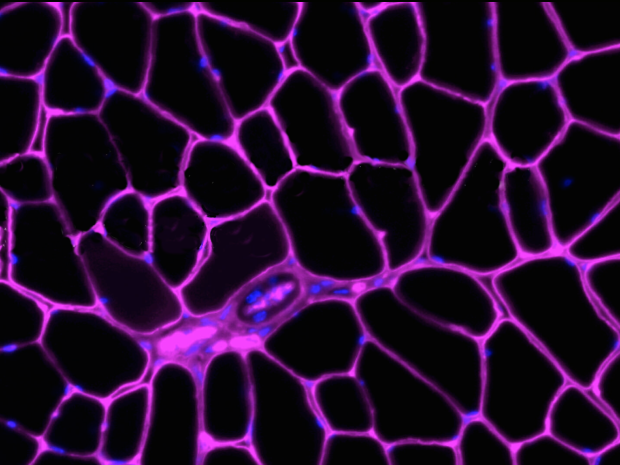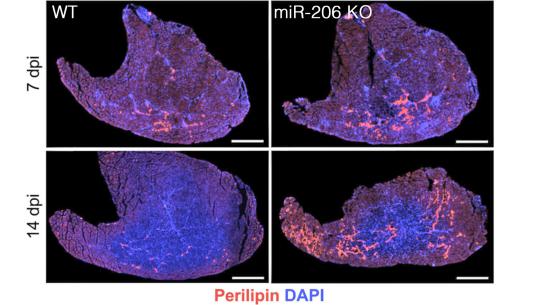Resident Mesenchymal Stem Cells as Master Regulators of Skeletal Muscle Maintenance and Regeneration

Speaker:
Michael Wosczyna, PhD
Assistant Professor, Department of Orthopedic Surgery
NYU Grossman School of Medicine
Abstract:
Tissue maintenance and regeneration are crucial for preserving tissue functionality and organismal health. With age and pathology, both of these processes can become inefficient. Prof. Wosczyna’s laboratory seeks to define the cellular mechanisms and identify molecular targets with which to mitigate pathological phenotypes and to extend tissue functionality further into age. They are specifically interested in the role of mesenchymal progenitor/stem cells in these processes, which they model in skeletal muscle and adipose tissue. He has recently demonstrated that mesenchymal stromal cells in skeletal muscle are robust mediators of atypical tissue infiltration and aim to elucidate the molecular mechanisms of the associated detrimental fate transitions. Furthermore, his group found that these same cells in their progenitor state are beneficial for the tissues in which they reside. By using progressive mouse models of disease coupled with advanced in vivo and molecular assays, this group continues to define the impact of progenitor cell state on tissue health. The ultimately goal is to harness this knowledge to better maintain and regenerate tissue in pathological and aged scenarios.
In 2011, Dr. Wosczyna received his PhD degree in Molecular and Cell Biology from the University of Connecticut. In the lab of Prof. Goldhamer he investigated the cellular origins of heterotopic skeletogenesis in the mouse using lineage tracing and bioassays of heterotopic ossification based on intramuscular transplantation. Subsequently he became a postdoctoral fellow and then instructor in the group of Thomas Randon, a renowned neurologist and stem cell biologist at the Stanford University School of Medicine. In 2020 Dr. Wosczyna joined the Department of Orthopedic Surgery at NYU Langone. He is the recipient of a coveted NIH K99 Pathway to Independence Award and his work has already been cited over 2000 times.


